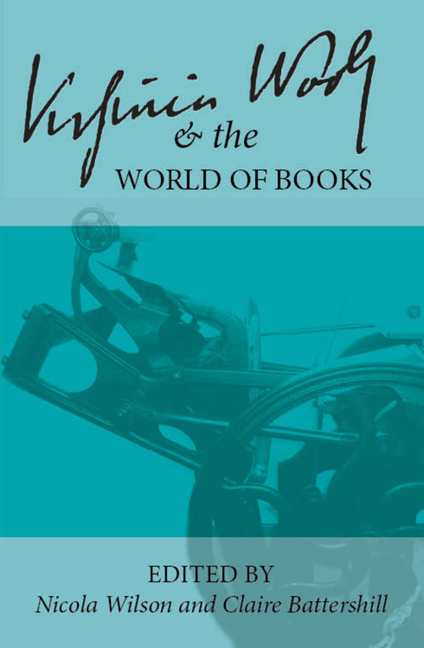 Virginia Woolf and the World of Books
Virginia Woolf and the World of Books Book contents
- Frontmatter
- Contents
- Introduction
- List of Abbreviations
- Keynote
- In the Archives
- Craftsmanship
- The Hogarth Press
- Hours in A Library
- The Art of the Book
- The Art of the Narrative
- Making New Books: Creative Approaches
- The Book in the World: Woolf's Global Reception
- Editing and Teaching Woolf
- Intertextuality
- Lives in Writing
- Taste and the Tasteful: Woolf, Radclyffe Hall, and the Culture of Queer Elitism
- Defining Life in Essays and Reports: “Mr. Bennett and Mrs. Brown” and the Government Reports on Infant Human Mortality
- “Penning and pinning”: Vita, Virginia, and Orlando
- Notes on Contributors
Defining Life in Essays and Reports: “Mr. Bennett and Mrs. Brown” and the Government Reports on Infant Human Mortality
from Lives in Writing
- Frontmatter
- Contents
- Introduction
- List of Abbreviations
- Keynote
- In the Archives
- Craftsmanship
- The Hogarth Press
- Hours in A Library
- The Art of the Book
- The Art of the Narrative
- Making New Books: Creative Approaches
- The Book in the World: Woolf's Global Reception
- Editing and Teaching Woolf
- Intertextuality
- Lives in Writing
- Taste and the Tasteful: Woolf, Radclyffe Hall, and the Culture of Queer Elitism
- Defining Life in Essays and Reports: “Mr. Bennett and Mrs. Brown” and the Government Reports on Infant Human Mortality
- “Penning and pinning”: Vita, Virginia, and Orlando
- Notes on Contributors
Summary
Today I want to go back to Woolf 's claims in her famous 1924 essay, “Mr. Bennett and Mrs. Brown” and revisit two of its major points: that human nature changed in or about December 1910, and that novelists have become too caught up in “things” as they try to understand human character. Like many readers, I'm both entertained and entranced by Woolf 's claim about the pivotal if fabricated importance of December 1910 and the change in humanity that took place on that date. Woolf associates the change she saw that year with a leveling of humanity; the Victorian model of hierarchy dissipated and the cook was no longer the Leviathan in the basement but rather a “creature of sunshine and fresh air” who popped in to ask sartorial advice (4). The servants emerged from the darkness and the wife from her saucepans. I cannot help but wonder how profound was the December 1910 change that Woolf spoke of. She doesn't simply align this change to social hierarchies or relations between men and women, but to the entire “human race,” urging us to rehearse our Agamemnon if we doubt the “power of the human race to change” (5). An almost instantaneous reshaping of the race is quite a claim, even if it's not an overnight transformation that produces a flowering bud or an egg, but “a change, nevertheless” (5). Perhaps the transformation was more like one of those evolutionary changes where fish developed those ineffectual little legs and itsy bitsy lungs that allowed them to gasp their way to shore. For how else, except by such degrees, does the “human race” evolve?
I'm sure someone before me has asked what happened in or about December 1910 and has, like I, checked the papers. There were all the normal debutante balls, sporting events, and political statements. In November of 1910, 200 Suffragettes were arrested in the Black Friday incident, sparking greater public support for the women's right to vote. But perhaps there is another way that the human race changed around this time— a change that is suggested by Woolf as she devotes much of the essay to distinguishing between persons and things.
- Type
- Chapter
- Information
- Virginia Woolf and the World of BooksSelected Papers from the Twenty-seventh Annual International Conference on Virginia Woolf, pp. 283 - 288Publisher: Liverpool University PressPrint publication year: 2018


